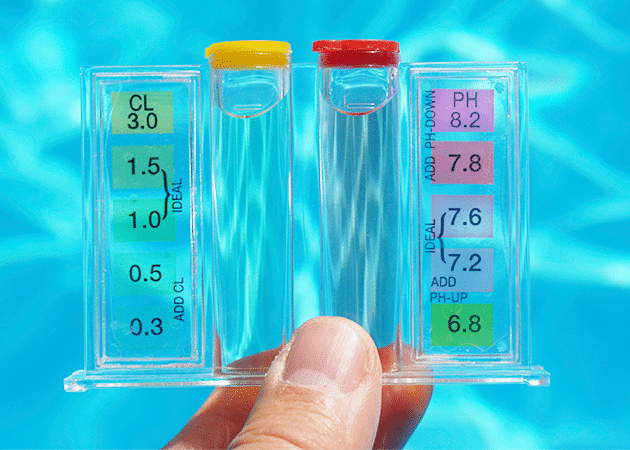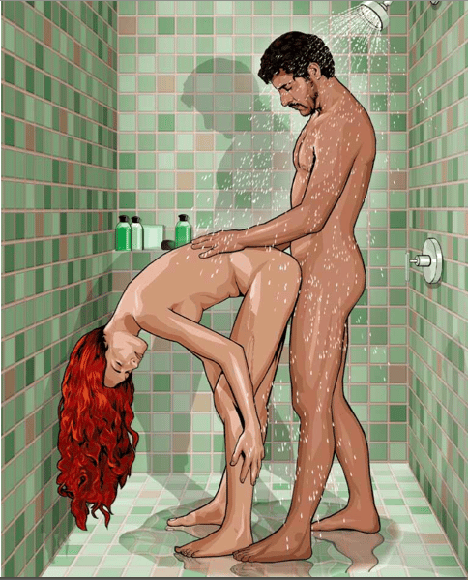You’ve seen it in the movies or on television – a hot and steamy shower scene or two people locked in a passionate embrace as the waves roll over them…
Well, REAL water sex isn’t the same as in the movies. Not at all.
Can it be fun? Hell yes!
But it also comes with a pretty extensive list of cautions:
1. DIFFERENT WATER = DIFFERENT PROBLEMS
While there are issues with water sex that span across all types and locations, there are also specific problems with each one – and most will leave your skin crawling. So, as your aquatic scenery changes, you’ll have to change your mindset and list of dos or don’ts.
For example…
2. PUBLIC POOLS OR HOT TUBS
In general, publicly shared water isn’t that clean (at least not in the way we imagine it or expect it to be). Even if the caretakers use chlorine correctly, it doesn’t mean that 100% of the nastiness will be killed off, particularly some bacteria – and some of it could find its way into the vagina or urethra (women have a greater chance of infection, but there’s still a chance for men too).
THINK ABOUT IT: If children use the space, you KNOW at least one of them has peed in it.
Pools also require a PH balance, and that PH level isn’t kind to women’s delicate vagina tissue. It’s also worth mentioning that poor PH maintenance makes it harder for chlorine to do its job properly.
On top of it all, there’s the chance of getting caught – which might be hot for some couples, but I wouldn’t risk it since it can lead to a ban from the property or even trespassing charges (maybe worse if the owner isn’t the forgiving type).

3. OCEANS, RIVERS, AND LAKES
Natural bodies of water aren’t much better. There’s animal waste, plant debris, bacteria, microorganisms, unseen pollutants, and even runoff from farming.
Oceans might be better than a public pool, but the salt levels are terrible for the vagina and can lead to infections or, at minimum, irritations and stinging!
Next is SAND, and even if you’re careful, it can get into… places.
4. IN THE SHOWER OR BATHTUB
Out of all your water options, this will be the best choice. Many of the irritants won’t be there and you’ll have more privacy.
However, don’t ignore the risk of SLIPPING. Take every precaution that you have safe footing and something solid to hang onto.
5. WATER ISN’T LUBRICANT
Any sort of water will wash away your body’s natural lubricant and end up causing unwanted friction and discomfort. This friction can also cause small tears (micro-abrasions) which can increase the risk of infections.
NOTE: Two common infections are bacterial vaginosis and yeast infections.
Your best choice will be a silicone-based lube (water-based will wash away and oil-based will degrade condoms)
6. CONDOMS AND WATER DON’T MIX
On the note of protection, condoms and water don’t play well with each other. This sucks because it’s one of the easiest and most common contraceptives and protection against STIs.
Water can wash away lubricant and spermicide. Oils, shampoos, chlorine, soap, bubbles, etc. increase the chance of condom degradation and breakage – oh, and hot water doesn’t help either.
There’s also the chance it will slip off mid-stroke.
If you’re going to go the condom route (which you still should), put it on and hold it in place before you dive in, and pay attention that it doesn’t slip off.

7. WATER DOESN’T STOP PREGNANCY OR DISEASES
If you’re in an F/M relationship, and your partner ejaculates inside you, there is still the normal risk of getting pregnant – sorry, water doesn’t wash away sperm.
It’s also worth mentioning (because some people don’t know this for forget it) that pre-ejaculation fluid can contain sperm. So, the pull-out method still isn’t a great contraceptive, even in water.
And, no matter what gender coupling you’re in, water isn’t a barrier against STIs – so ignore any “advice” that chlorine kills these nasties.
8. EJACULATION OUTSIDE THE BODY IS DIFFERENT
Cumming in the water (rather than in your partner) has its own set of rules.
First, you can’t get pregnant this way. Sperm requires a very specific environment to survive –temperature, PH etc. And while it can survive in the female body for several days, it will most likely die fast in your pool or the ocean.
NOTE: Remember what we said about chlorine not killing STIs? Remember that before you drop your little guys in the pool.
9. PLAY A DIFFERENT WAY
Sex isn’t only about intercourse. And, considering all the risks with sex and water, it’s good to take a different pleasure path.
MASTURBATION – Use your hands to get yourself or each other off (but be careful with fingering and scratching the vagina or you’ll still have problems).
ORAL SEX – This is a great option for the shower (don’t try it with public or natural waters though).
JUST KISSING – Hot and heavy kissing and dry humping can be equally as fun.
SEX TOYS – Penetrative toys can still push in water or cause friction, so I would recommend something like a clit vibrator or a magic wand – just make sure it’s WATERPROOF (not water “resistant” or “splash-proof”).
Want a discreet sex toy you can sneak in the water? Try…
AMBI by Lovense – The Most Versatile Bullet Vibe. Ever.
SHOWER HEAD – Most ladies know how the showerhead can be their best friend. Introduce your partner to them!
DRY LAND – If you’re hell-bent on having intercourse, have it on land first and then jump in the water (or vice versa).
10. BE RESPECTFUL
It’s important to mention that if you reeeeeallly want to get into “public play”, you should remain respectful of other people’s feelings – they might not want to watch and definitely won’t appreciate your bodily fluids non-consensually floating around them.
. . . . . . . . . . . . . . . . . . .
Also, if you want more interesting articles, you might like these:
- 10 Important Things to Know About Sex During Pregnancy
- 8 Reasons Why Period Sex Is Great and We Should Stop Cringing
- What is Tantric Sex? A Simple Guide Without the Spiritual
Any other sex-in-water tips you want to add? Maybe you have a hot story to share? Tell us in the comments!


